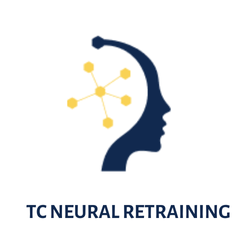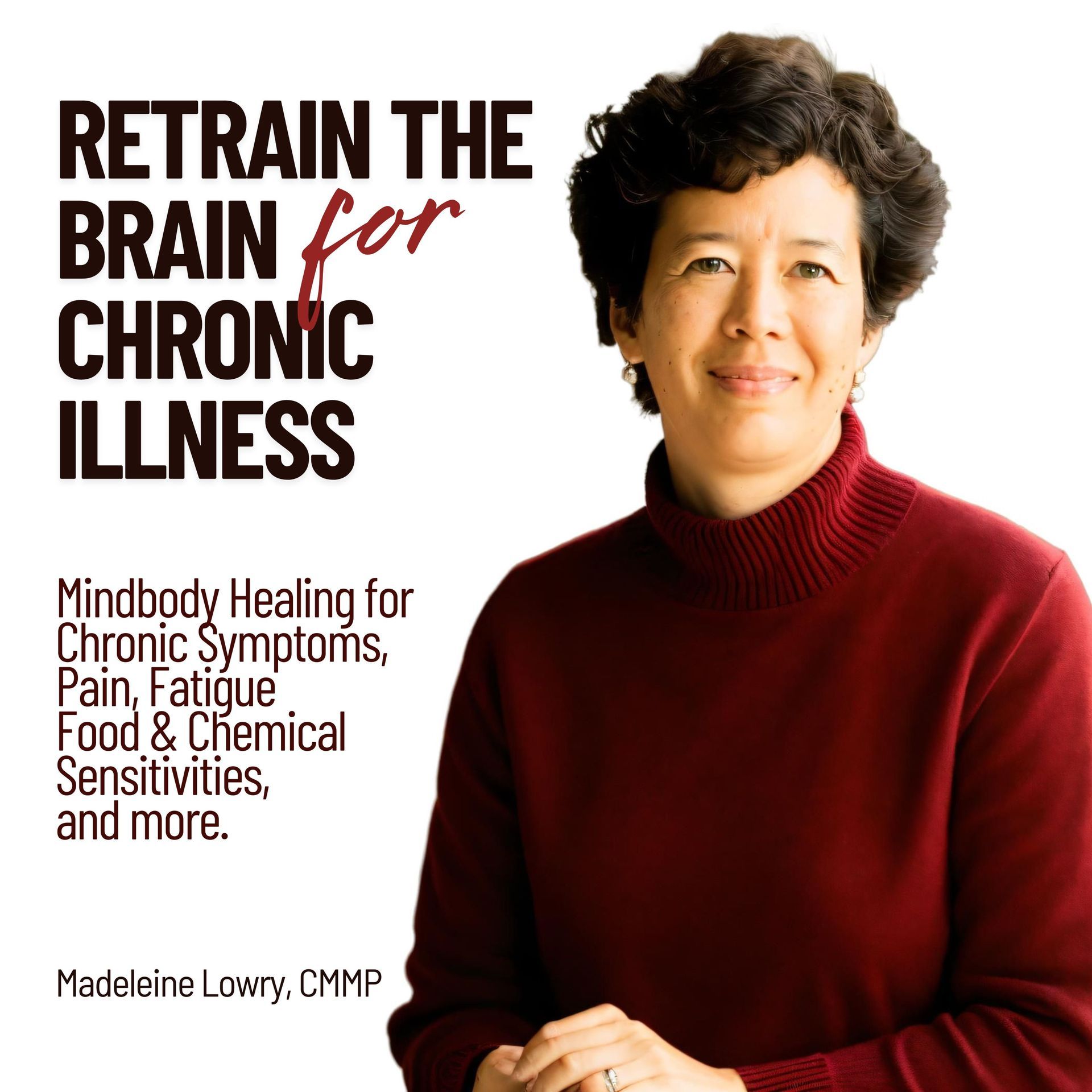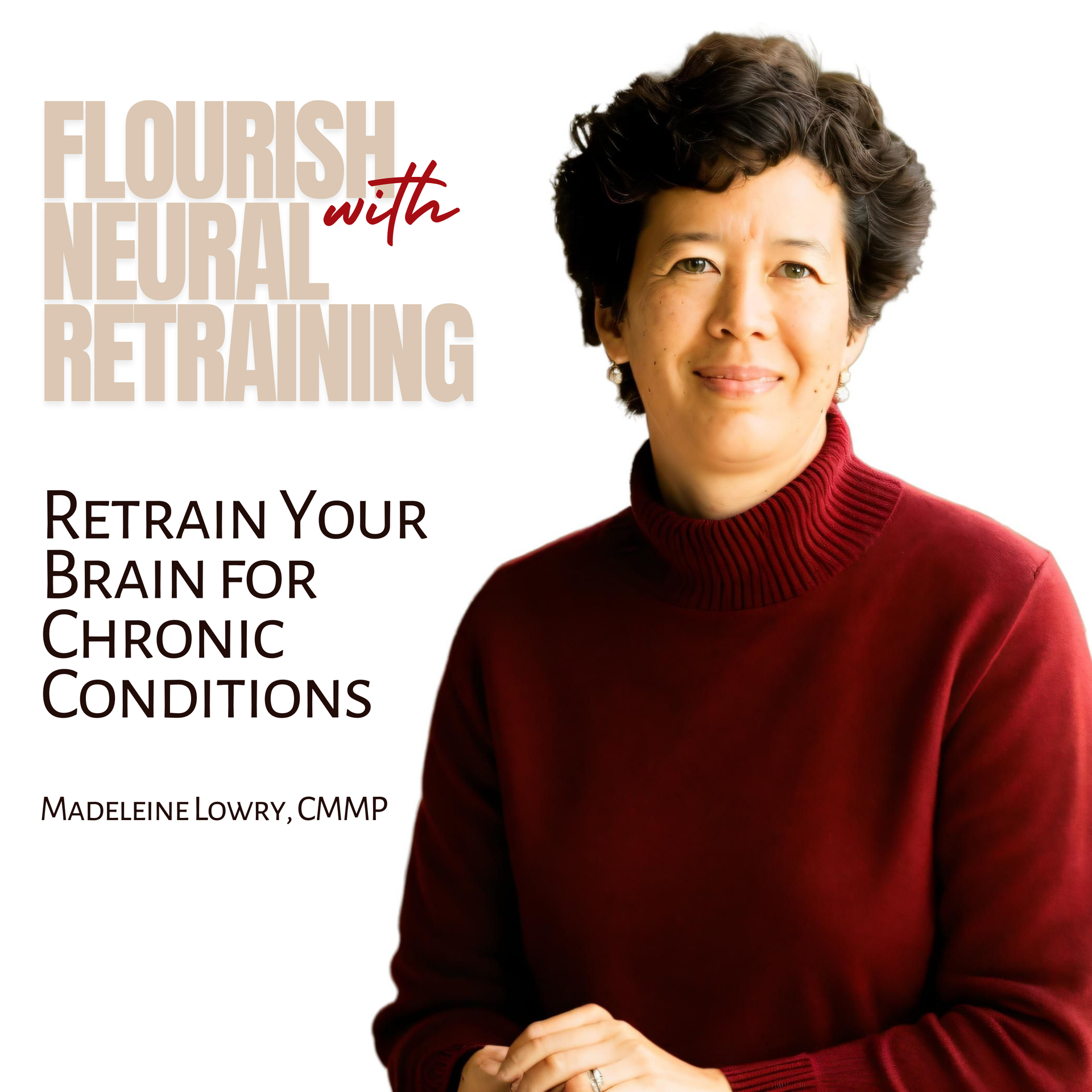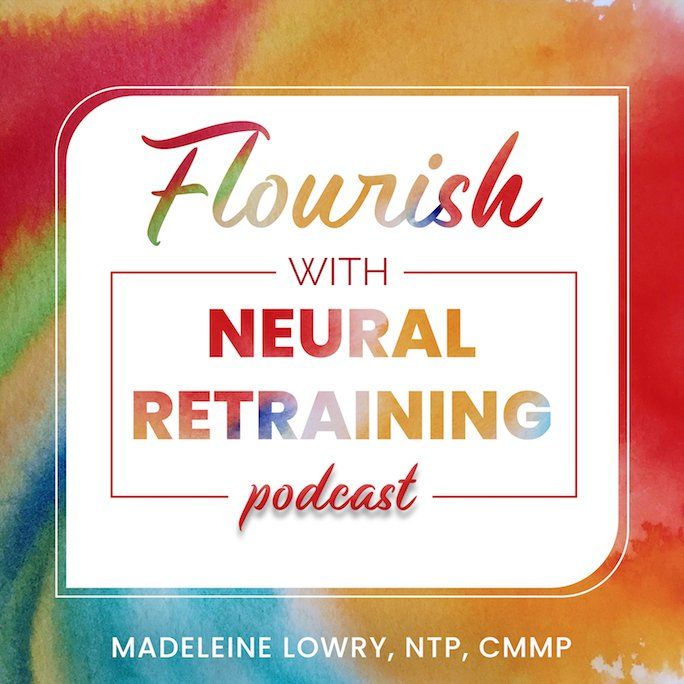Why Do Sensitive People Develop Chronic Illness?
Understanding the connection between personality and chronic health issues.
Video transcript
Hi. Today I want to answer the question: Why is it that sensitive people so often end up with chronic illnesses? This is a question this that is beautifully answered in this new book by Anita Moorgani, Sensitive Is The New Strong.
Anita Moorgani is an author who previously wrote the book Dying To Be Me which is she's quite well known for. In it she tells the story of how she developed cancer and how it progressed to stage four, was about to die, went into a coma, and had a near-death experience. She became enlightened, you could say, through that experience and came back to life to spread her message.
Spreading the message of what she learned through that near-death experience; about how we are meant to live our lives. So, in this new book she talks about sensitive people and how they're very sensitive to all stimuli but especially other people's feelings, their thoughts, their opinions of us, or judgments.
She talks about how sensitive people easily fall into the trap of wanting to avoid criticism and conflict because they're just so highly sensitive to how other people feel and think about them. In order to avoid this they become people-pleasers. With people-pleasers, essentially what you are doing when you're the people-pleaser, is you are meeting the other person's needs so that they can be happy, and so you can alleviate the feeling of stress, pressure, conflict, judgment, or criticism that you would otherwise get if you didn't take care of this need.
In doing so, we are repeatedly denying our own needs, we are repeatedly denying our own limits, we are giving of ourselves beyond what we are capable of. This can become a very entrenched pattern that leads to a kind of victim mentality.
This is definitely something that I see in my practice and even more so I see how childhood trauma or trauma early in our life can lead to these patterns, because what I have observed is that if you were born with any tendencies towards being sensitive, early childhood trauma will just crack you wide open, so to speak.
When we go through those traumas very early in life, when we are truly powerless, one thing that we can learn in terms of a way of protecting ourselves and anticipating danger, we learn that how we feel is not important and that in order to stay safe we need to monitor the external situation.
We need to monitor the feelings and the goings on of everyone around us--that's how we stay safe. That's how we take care of people that we love, and this leads to even more heightened sensitivity to other people's feelings over our own needs, our own feelings.
Sometimes we can't even feel our feelings, like we don't know how we feel until sometime later.
The problem with this pattern is that it results in chronic illness very often. Why? Because it's like the path just reinforces all the wrong patterns of behavior. This constant denial of our self and our needs, our emotions, everything about ourselves, our authenticity, leads to chronic illness because it puts you in a constant state of stress.
Every time you deny yourself, every time you do something to appease the other and deny yourself, you are creating a stress response in your body.
But, the other thing about this is that victimhood has benefits. There are secondary benefits. We don't recognize them as such, but when you have a diagnosis of a chronic illness then finally you are forced to prioritize self-care and you are more able to say, "No" to things that others would have required of you otherwise. And so this is the pattern, whereby sensitive people develop chronic illnesses. I see it all the time in my clients.
With the MAP Method, with this method of advanced neural retraining, we can turn this pattern around because that tendency towards people-pleasing is a kind of compulsion. And with the MAP Method we're able to change behavioral patterns. It's a learned behavior, it's a coping mechanism that you learned, but it does not need to be invoked at the level that it is, and it also can be changed to a different behavioral pattern.
You can start to disengage from the feelings of others. You can recognize them but you can learn to establish healthy boundaries to recognize what belongs to them versus what belongs to you and therefore not be compelled to rush out and protect and save everyone or solve everyone's problems.
This creates a space for there to be more you. For you to be able to connect to your own needs, your own desires. And when we are more authentic, when we are more able to be ourselves in the world, then the secondary benefit is no longer needed.
The body can start to heal itself. It comes back online and these chronic conditions start to resolve because now we are taking care of ourselves in a better more empowered way. We are showing up in the world in a more empowered way. At its most basic level that is what MAP Method sessions are meant to do: They are meant to help the disempowered become empowered.
That is the ultimate goal of MAP sessions. That is the objective of each and every session-- to change some repeated pattern in your life so that you feel more empowered.
So, I hope that this is helpful and if you see yourself in this pattern then I invite you to give the MAP Method a go. You know, people are often seeing positive results emotionally and mentally or behaviorally in three sessions, four sessions. And people are starting to see physical changes in their health after four, five, or six sessions, so it is a fairly fast way of dealing with these kinds of patterns, these patterns that result in chronic illness or can exacerbate chronic illness.
So, I invite you to give it a try. Thank you for listening.
Learn More
- See the videos about the science behind the Method, QEEG brain studies, and a demonstration MAP session.
- Watch the Frequently Asked Questions videos about MAP.
- Learn more about basic versus advanced methods of neural retraining.
- Listen to client stories on our podcast.


Madeleine Lowry, NTP, CMMP
Certfied MAP Method Practitioner
Madeleine specializes in neural retraining for chronic conditions. As a Nutritional Therapy Practitioner, she worked with many clients who were interested in eliminating allergies, sensitivities and intolerances. After learning a basic method and seeing its limitations, she trained in an advanced method of retraining the brain and now offers MAP sessions over Zoom and online self-paced programs for Anxiety/Depression, Sensitivities, Chronic Pain, Self-Healing, and COVID Long.
Related Posts





